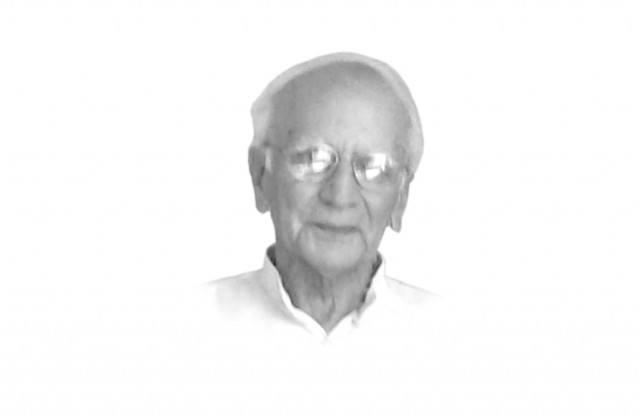
Lord Curzon was no ordinary member of the House of Lords. He was a political heavyweight of the British ruling elite. Anxious to reform the army set up and place it under the control of the civil executive, Curzon obtained the appointment of General Horatio Herbert Kitchener, the most famous and popular soldier of the time as commander-in-chief of the Indian army. V A Smith describes the encounter between the two greats in the following words:
“.... Curzon found himself faced with a demand for the unification of the army administration under the commander-in-chief. Hitherto the head of the army in India had been the commander-in-chief, who had been customarily appointed an extraordinary member of the viceroy's council. But the administrative army department was in charge of an ordinary member of the council who was a soldier of standing not allowed to hold a command during his term of office. The arrangement … meant that Viceroy could also obtain a second opinion about military matters in addition to that of the commander-in-chief. Kitchener resented this and desired the unification of the whole administration under his control…. Curzon considered that the substance of the matter had been conceded to Kitchener and he resigned in August 1905.”
The World War I made the generals regain the glory of the Wellington days in defining the high interests of the Empire. On April 13, 1919, a brigadier named Dyre shot dead 379 and wounded 1,500 citizens in cold blood at a Bhaisakhi Mela at the Jallianwala Bgh in Amritsar. Winston Churchill describes the massacre: “The Indians were ‘packed together so that one bullet would drive through three or four bodies’; the people ‘ran madly this way and the other’. When fire was directed upon the centre, they ran to the sides. The fire was then directed to the sides. Many threw themselves down on the ground, and the fire was then directed on the ground. This was continued for eight or 10 minutes, and it stopped only when the ammunition had reached the point of exhaustion.”
He proudly told his superiors that he had been ‘confronted by a revolutionary army,’ and had been obliged ‘to teach a moral lesson to the Punjab.’ A commission of inquiry was instituted. The brigadier was promoted to the rank of major-general and placed on the inactive list.
The 1920s began with the brutal suppression of the Moplahs’ protests, (described by Mahatma Gandhi as a freedom struggle) in Kerala. The official figures were 43 troops killed against 3,000 Moplahs. Unofficial sources describe Moplah casualties to be as many as 10,000. The violent suppression of protests termed “riots” between 1924 and 1928 throughout India frequently required the army to play a decisive role. Later, when the huge protests turned non-violent under the command of Gandhi, the troops were on call all the time. Gandhi when confined in Birla palace as a prisoner was guarded by the gora fauj.
The massacre at the Jallianwala Bagh, the extreme action to suppress the Moplas and keeping the army on call at the time of the “riots”, and during the Congress agitations under Gandhi showed the weakened authority of the Raj during World War II. Confronted with the power of the people, the governor general and Viceroy Field Marshal Wavell advised that either five additional divisions of British troops should be provided or independence should be conceded. Another military man, Admiral of the fleet Mountbatten was chosen to perform the formal rites of the departure of the British troops. The military had conquered India and the military surrendered. Not for a day in its 200 years history, the British Raj had allowed elected representatives of the Indians to oversee or share the direction of the apparatus of the state which dealt with the internal and external security of the country.
Published in The Express Tribune, October 6th, 2010.


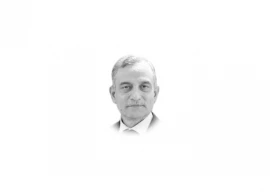

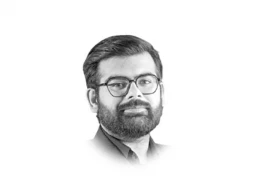
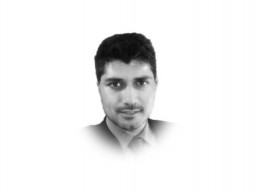
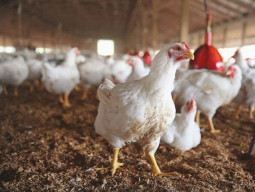
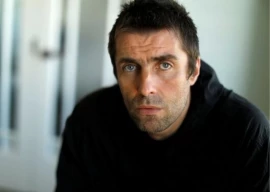

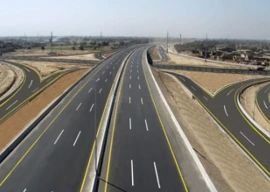
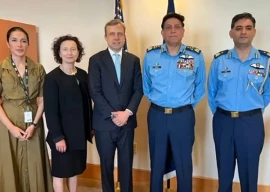


COMMENTS
Comments are moderated and generally will be posted if they are on-topic and not abusive.
For more information, please see our Comments FAQ